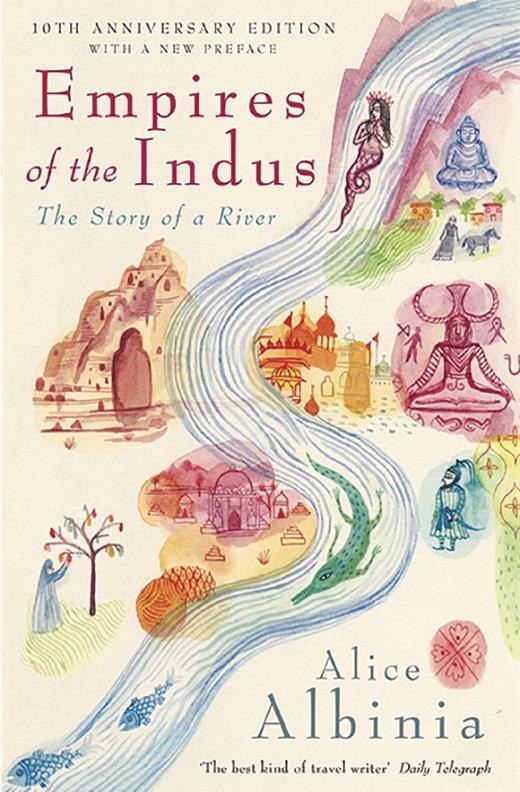In “Empires of the Indus: The Story of a River,” the riveting account of Alice Albinia’s own journey from the delta of the mightly Indus river up to the northern regions of Pakistan, the author describes the intricate fabric that weaves the region’s culture with finesse. She traverses millennia, from the accounts of the Mesopotamian merchants and Alexander the Great’s historians, to the Persian emperors and the Buddhist civilizations of old, the Greek kings, Afghan Sultans, Moghuls, and of course, the colonizers. The Indus (a.k.a., Sindhu, Sher Darya) river has witnessed thousands of years of human history as though it were on a loop — repeating the same mistakes, then repeatedly forgetting the lessons learned. The Indus has seen borders drawn and erased around it time and again and has witnessed many Southeast Asian civilizations emerge and disappear. The characters change over time, but the themes remain the same: When diverse people come together for a common purpose, they thrive. Whenever the Indus witnessed a conflict based on race, religion, caste, creed, or nationalism, the people always lost. The Indus has witnessed the wonders of the human spirit and ingenuity, as well the cruelty and follies of mankind. The further into the book I read, the more it occurred to me that this could very well be the story of the Mississippi River a few hundred years from now.
As I approach the 16th anniversary of my life in the United States, I can’t help but reflect on experiences that have helped shape my own journey as a physician — this book being one of them. My wife and I are Pakistani-Muslim immigrants who followed their dreams after medical school and made a life for themselves in a land of opportunity. We persevered to be part of the story of the United States of America. Although the age of information technology has made the world a “smaller” place, it appears counterintuitive that there is a sort of selective amnesia for the lessons etched in the annals of human history. What makes the United States great is us as a collective; being different is okay and, if anything, makes us stronger as a whole. Even in the current political environment, I find great comfort in being part of a profession and research community that works in sync toward the common goal of alleviating human suffering.
Competing Interests
Dr. Usmani indicated no relevant conflicts of interest.

